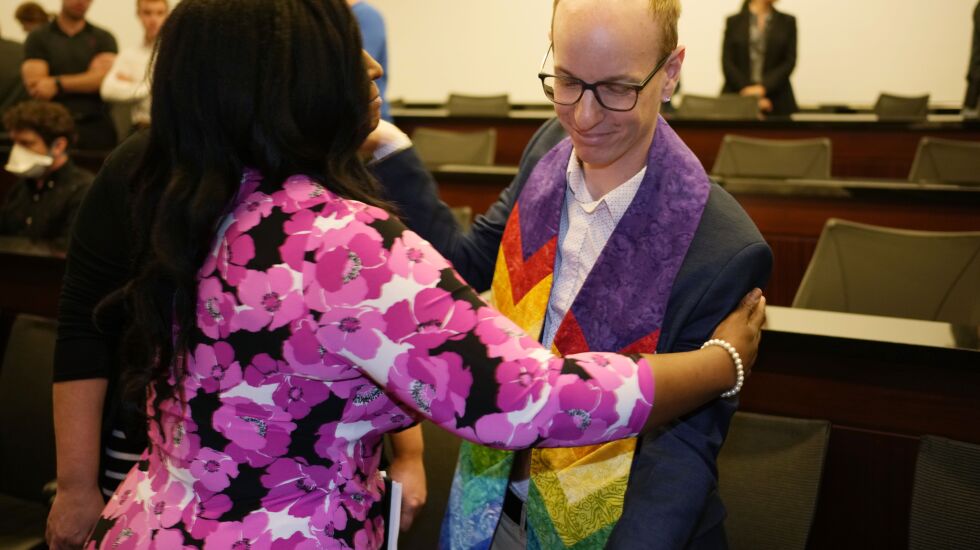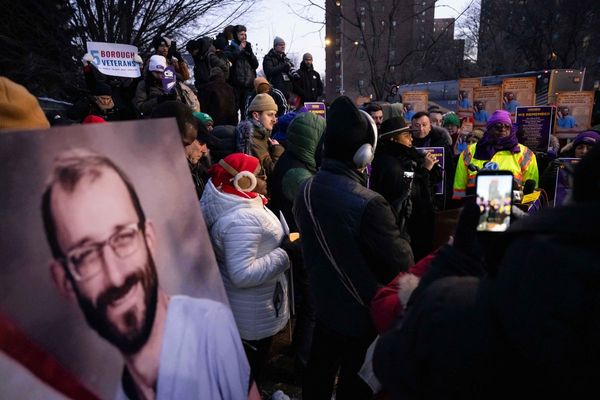
Friday was a bad day at the U.S. Supreme Court for student loan borrowers and the LGBTQ community.
In its final decision of the current term, the court effectively told millions of young people “forget it” when it comes to a modest $10,000 to $20,000 in student loan debt forgiveness.
By a 6-to-3 vote, the court’s conservative majority struck down President Joe Biden’s sweeping loan forgiveness plan, arguing that Biden overstepped his authority and that only Congress has the power to approve the plan’s estimated $400 billion price tag. Some 26 million people had applied for relief, but will now have to resume student loan repayments this October without it.
However unwelcome, Friday’s decision was expected. Even Democrats disagreed on whether Biden had the authority to enact large-scale loan forgiveness. As the majority opinion by Chief Justice John G. Roberts Jr. points out, then-House Speaker Nancy Pelosi said as much in 2021: “People think that the President of the United States has the power for debt forgiveness. He does not. He can postpone. He can delay. But he does not have that power. That has to be an act of Congress.”
Biden’s plan was flawed, but we supported it as a way to begin to ease the weight of $1.6 trillion in student loan debt now owed by tens of millions of young people — especially young Black Americans, who tend to owe more — and in some cases, their parents. Polls show many Americans also support modest debt relief, though support declines as the amount of loan forgiveness increases.
The president quickly vowed to find “a new path” for loan forgiveness — and didn’t mince words about Republicans; six Republican-led states sued to stop the president’s plan.
“They had no problem with billions in pandemic-related loans to businesses — including hundreds of thousands and in some cases millions of dollars for their own businesses. And those loans were forgiven,” Biden said. “But when it came to providing relief to millions of hard-working Americans, they did everything in their power to stop it.”
Debt relief is only part of the solution, though. If America truly wants to ensure that higher education is available to all, regardless of financial means, then public officials must come up with a long-term answer to the vexing question of how to keep college costs manageable.
There are options worth considering besides the president’s quickly-announced stopgap plan, set up a 12-month “ramp” repayment program for borrowers who will soon have to begin repaying loans and allowing the secretary of education to waive or release loans under certain circumstances.
Those options could include making student loans interest-free, except for a small percentage to cover administrative costs; making income-based repayment the standard for all student loans; and making public service loan forgiveness more accessible.
The Biden administration and Congress have their work cut out for them.
Making anti-LGBTQ discrimination legal?
The court handed down a far more egregious decision on Friday: It ruled in favor of a graphic designer who, citing her Christian faith and First Amendment rights, wants to refuse to make wedding websites for same-sex couples and to advertise her policy online.

There’s simply no sugar-coating it: The six conservatives who upheld the challenge to a Colorado anti-discrimination law cast a shameful vote, one that allows an individual who serves the public — or rather aspires to, since designer Lorie Smith has yet to even launch her website business — to discriminate against the LGBTQ community.
It’s a decision that sets the nation on the slipperiest of slopes.
Is it truly unreasonable to fear — at least with this current court — a ruling someday that allows a store owner to refuse to hire Jews or sell to African Americans or Muslims, so long as the owner makes the argument that it’s all just a matter of freedom of speech and exercising religious conscience?
In the majority opinion, Justice Neil M. Gorsuch writes that, “The First Amendment envisions the United States as a rich and complex place where all persons are free to think and speak as they wish, not as the government demands.”
We agree. But that sentiment seems entirely beside the point. The right to refuse service to certain members of the public who are protected by law — not Smith’s right to think or say whatever she pleases — are the issue here.
In a dissent opinion that called the ruling “profoundly wrong,” Justice Sonia Sotomayor warned of the impact down the road.
The court, she wrote, “for the first time in its history grants a business open to the public a constitutional right to refuse to serve members of a protected class.”
The Colorado anti-discrimination law at issue in the case, Sotomayor wrote, “targets conduct, not speech, for regulation, and the act of discrimination has never constituted protected expression under the First Amendment.”
Send letters to letters@suntimes.com







